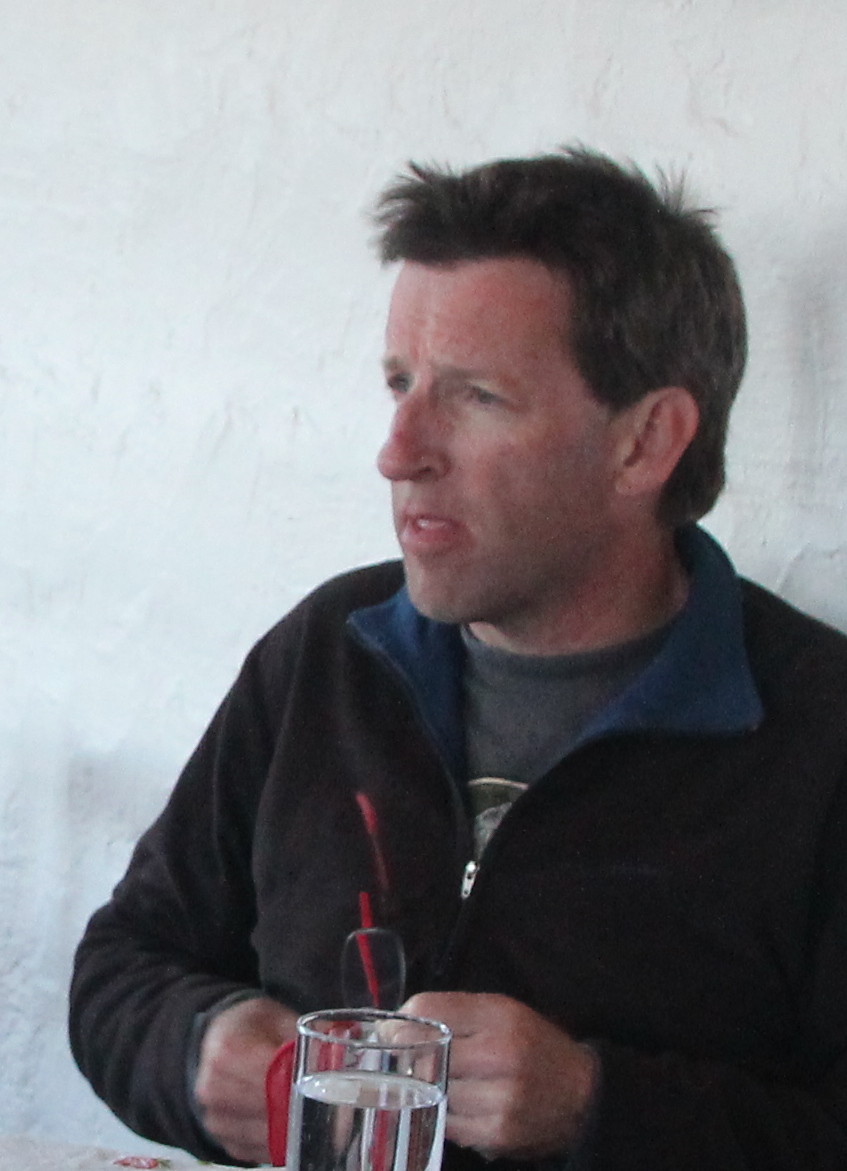…out of growing actual physical necessity, sometimes, or maybe it’s just the power of suggestion, something about waking to the nearby sound of a freight train with the windows open for the first time on a warmer-than-it’s-been spring night, but in any event the reality of the premise doesn’t matter because once the thought has arisen that relieving the kidneys might help with getting back to sleep there is no way to stuff it back into the sack whence it came.
Chalk this one up to the hard-won wisdom of age: there is no point in deliberating about the issue. Just get up, dammit, and take care of what needs to be done.
I wish I could claim that it is the simple tricky logistics of moving around a cluttered house in the dark, trying not to wake my wife, that makes this short walk the most cautious of all the steps I take during the course of a day, that it is the not inconsiderable risk of walking into a sleeping cat or cast-off sweatshirt or open closet door that makes me sidle along so very cautiously, scraping along sidewise, arms half out in front of me to protect my chest in case I stumble, but no it is not that, or at least not that alone. Nor can I claim that I walk so tenderly and awkwardly, with my weight all collected onto the balls of my feet, because here in the high uplands of the Southwest the season for wearing sandals has already begun and during the course of a weekend spent puttering around the yard my feet grow as dry and cracked during the day as some ancient piece of worked leather that a guy might stumble on in a cliff crevice on some spectacular scrambling hike, and even though the cracks that form on my heels can hurt like hell I daub some piñon resin or even superglue on there sometimes and call it good, taking the pain as a reminder of how lucky I am to live in a place where I can go without regular shoes much of the time. I’d love it if that were sufficient reason for this ridiculous gait, the antithesis of how when I run I like to place one foot right in front of the other in the way that works so well for navigating a narrow dirt trail, but in reality when I wake at night and take the short walk to the john it is mainly my stiff knees and creaky joints that prompt me to walk in what I tend to think of as an old guy’s shuffle, made up of mincing crabsteps that have in them none of the ballsy swinging knee motion of youth.
When I get there I have to decide, since this is primarily my wife’s bathroom, whether I am going to stand or sit to pee—a discussion for another time maybe. But while I am doing my business it is time to remember that this is the compromise I have reached with my knees, and with the joints of my hips, and with the way my lower back comes to ache so much sooner now when I am shoveling snow or working the compost into a garden bed. Namely, that I have made a deal with them that they can by the end of my life fail me entirely as long as I can remember clearly all the places they have taken me: that long downhill scramble past the monastery in Greece, the repeated trips up and down the endless switchbacks of Grand Canyon, all the church towers climbed in European cities of ancient stone, that day toting my young son up a cold mountain in Japan where the stone buddhas all wore funny red cloth hoods that really seemed to enliven their placid faces and the Japanese hikers all seemed amused to encounter an American family, and these days the ceaseless trips I make in the garden toting soil and chicken feed and buckets of rainwater for the vegetables.
In the face of this deal it would be best of course to be in great shape until near the end and then fall apart comprehensively and all of a sudden, as did Oliver Wendell Holmes’ famous one-hoss shay, but that is a lot to ask of the universe. It is equally plausible, or perhaps more so, to imagine some catastrophe of accident or violence or disease untimely that renders the bodily equipment irrelevant, so that it by happenstance stops working before its time—in which case, won’t I regret having missed out on even more opportunities to have worked my joints? If I never have to sit in a wheelchair, withered, then surely I’ll regret that I didn’t do more skiing, or pounding of the trails in order to work up a sweat, back when I could.
I think of it as the red-line philosophy of life, that I want to live as much and wear myself out as much as I can without crossing over the line that would shorten the whole experience—getting away with as much as I can without getting into real trouble; getting my money’s worth from the bone and muscle and sinew I’ve been granted.
Which, I must be honest, I wish I did not have to think about at all. “[W]hat it is to be young is not to be in a state of ecstasy,” the New Yorker’s Adam Gopnik has written, “but merely to be unimpeded, to be in the world without having undue consciousness of your own muscle and bone within it.” And so as I head slowly back to bed it is always with a pang of envy for the days when I embodied a thoughtless grace even when arising in the middle of the night—or, more often still, did not have to get up then at all.

